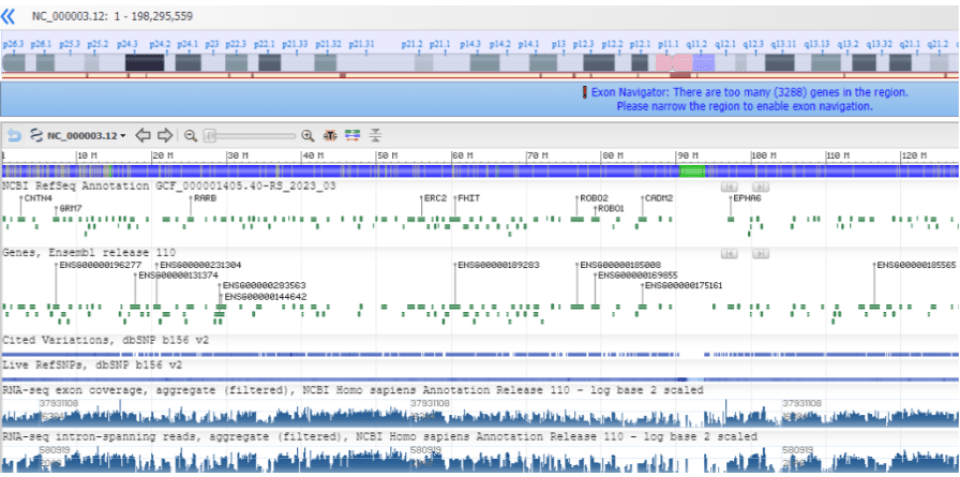June 2023 – August 2023
At the beginning of summer, we received the gene annotation of the filtered bioinformatic data of the whole genome sequencing of the first round of patients of the study. As we previously mentioned, our first approach is to focus on genetic variants located in the coding region and with a clear functional effect on the gene that are located on. During these three months we have been studying and filtering the information received.
An example of a preliminary result from this first analysis is the identification of a tandem duplication of the LRRFIP2 gene in two patients. This gene is contiguous with the MLH1 gene, which encodes a very important protein involved in the DNA mismatch repair. This type of structural variant is missed by standard molecular diagnostic tests, such as gene panels or exome sequencing, making the sequencing of the whole genome relevant. With this information, we designed some primers to be able to identify, with a polymerase chain reaction (PCR), patients who are carriers and those who are not carriers of said duplication. This discovery could offer the relatives of these patients a simple PCR test to confirm the presence of the structural variant and offer them greater medical follow-up to prevent the development of colon cancer.
Similarly, by filtering the sequencing data already annotated single nucleotide variants in the same gene have been identified in three different patients. In addition, more genetic variants have been identified in other candidate genes of interest. Its validation will be aided by the upcoming analysis of the somatic and transcriptome sequencing data.

